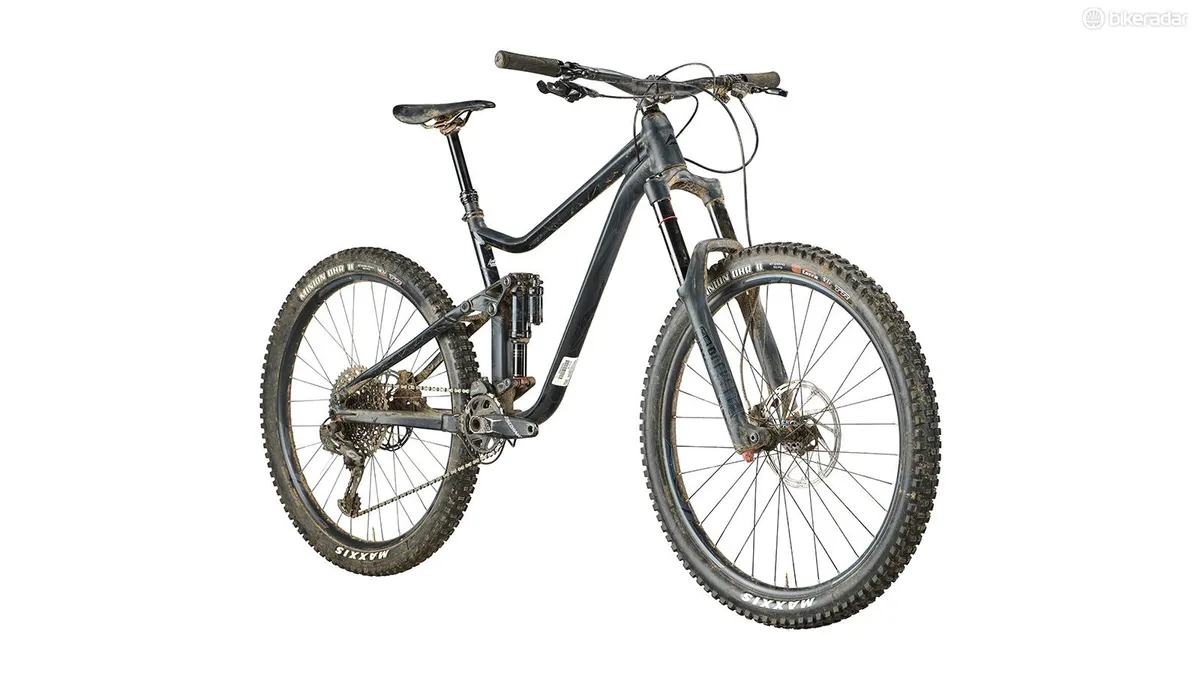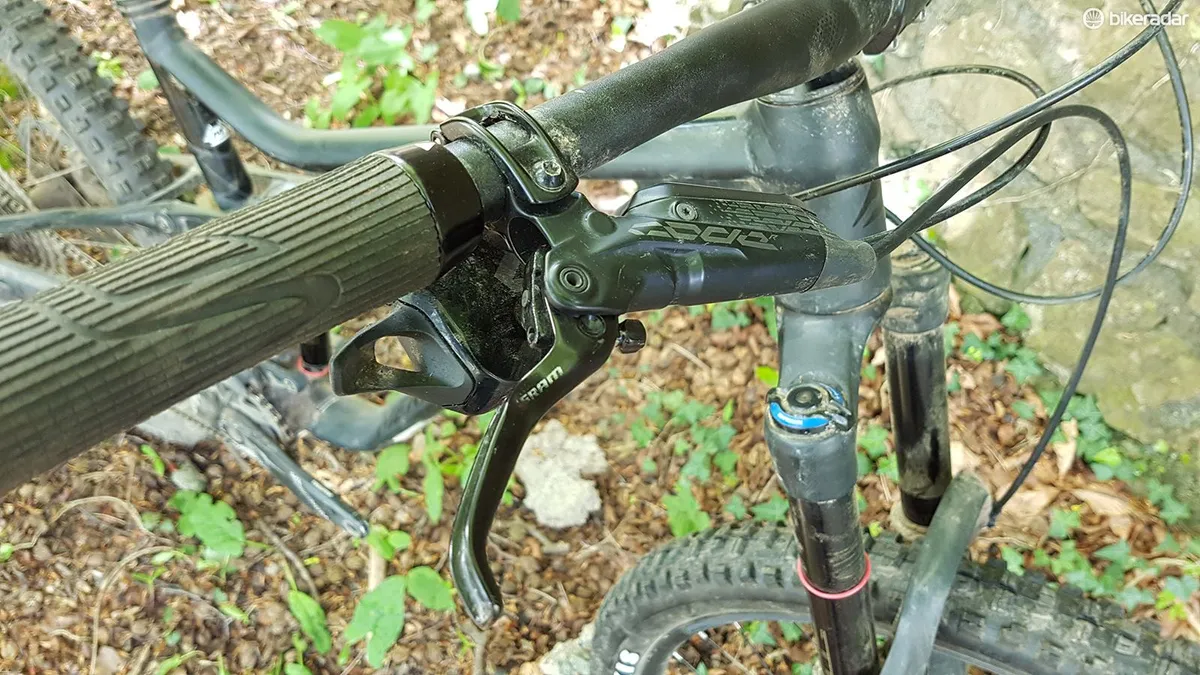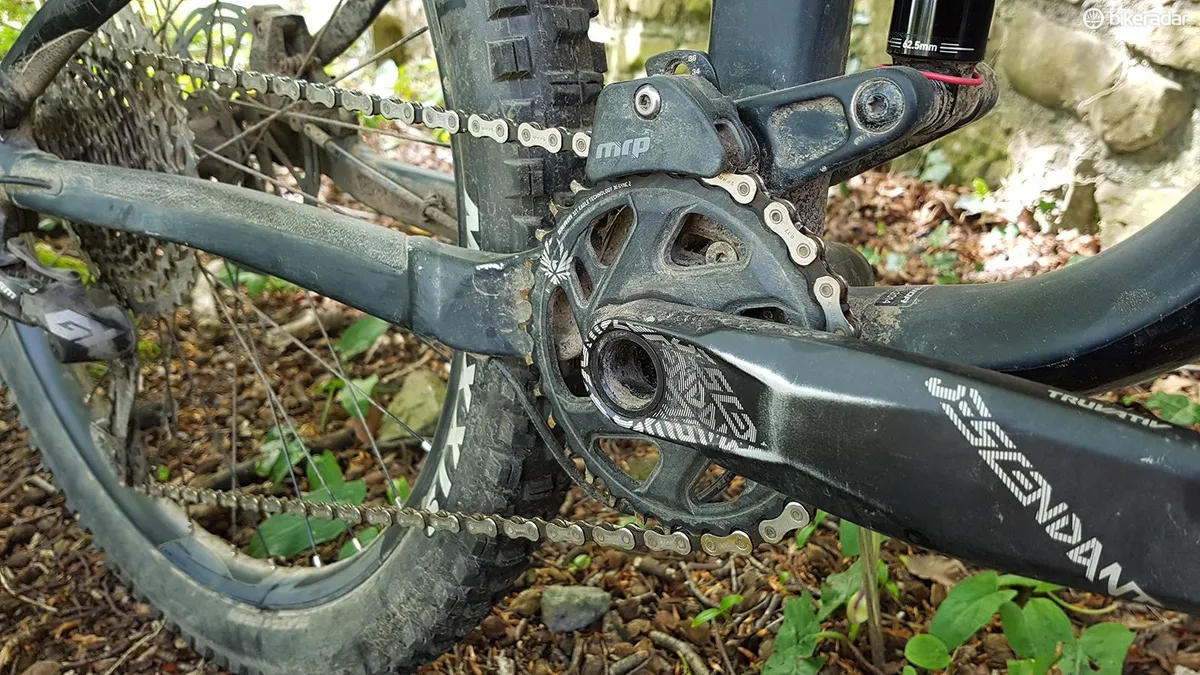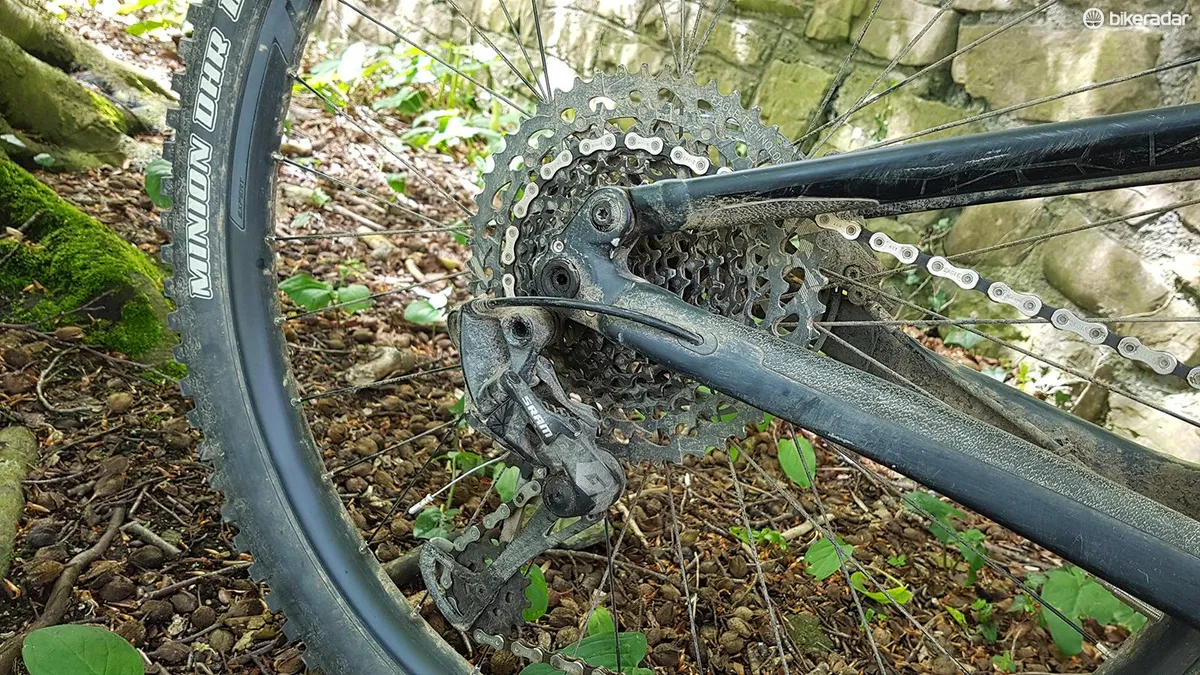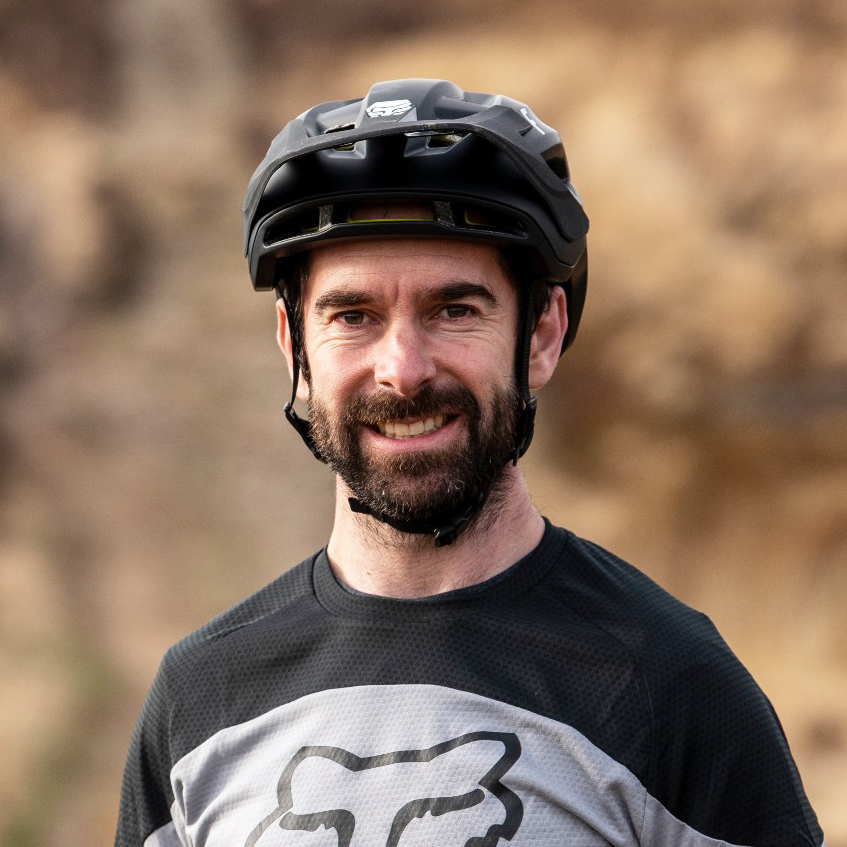Merida's One-Sixty range is aimed at hardcore trail riders or enduro racers. There are five bikes on offer, of which the 800 is the priciest of the two alloy models.
- The Merida One-Sixty 800 is one of our Bike of the Year bikes for 2018. To read reviews of the other contenders and the categories tested across road, mountain and women's bikes, visit our Bike of the Year hub.
The One-Sixty's relatively slender tubes help give it a clean, uncomplicated look that always goes down well among other trail users. And it's hard not to like the full stealth finish of the 800.Merida's reach numbers are common with many in this category, sporting 440mm on my Medium frame, while the effective top tube offers 591mm when seated.
While those numbers worked pretty well for my height of 5ft 8in, if you're around the same height and want to size up for a roomier feel, the Large jumps up 34mm in reach over the Medium (reach is 474mm on the Large), while the seat tube gains 40mm, which could make jumping up sizes a little tricky. On the plus side, unlike the carbon One-Sixtys, the alloy models come in five different sizes.
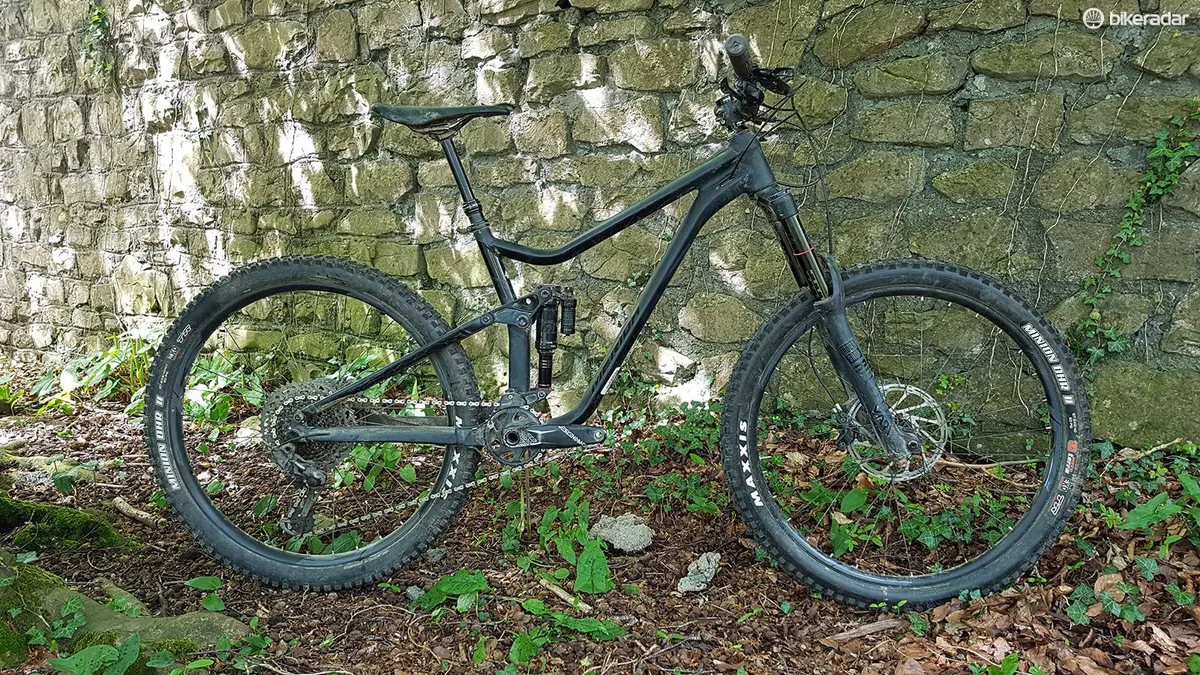
Just as the name suggests, the back end of the bike delivers 160mm (6.3in) of rear-wheel travel via its single pivot, linkage actuated suspension design. The shock is fixed to chainstays tips that extend past the main pivot and is compressed using the short rocker link to create a more bottomless feel when dealing with bigger hits.A 65.8-degree head angle feels stable enough at high speeds, though the bottom bracket could be a shade lower, sitting at 345mm off the ground with just 6mm of drop.To cap things off there's room for a bottle and the internal cables are neatly clamped in place for a rattle-free ride.
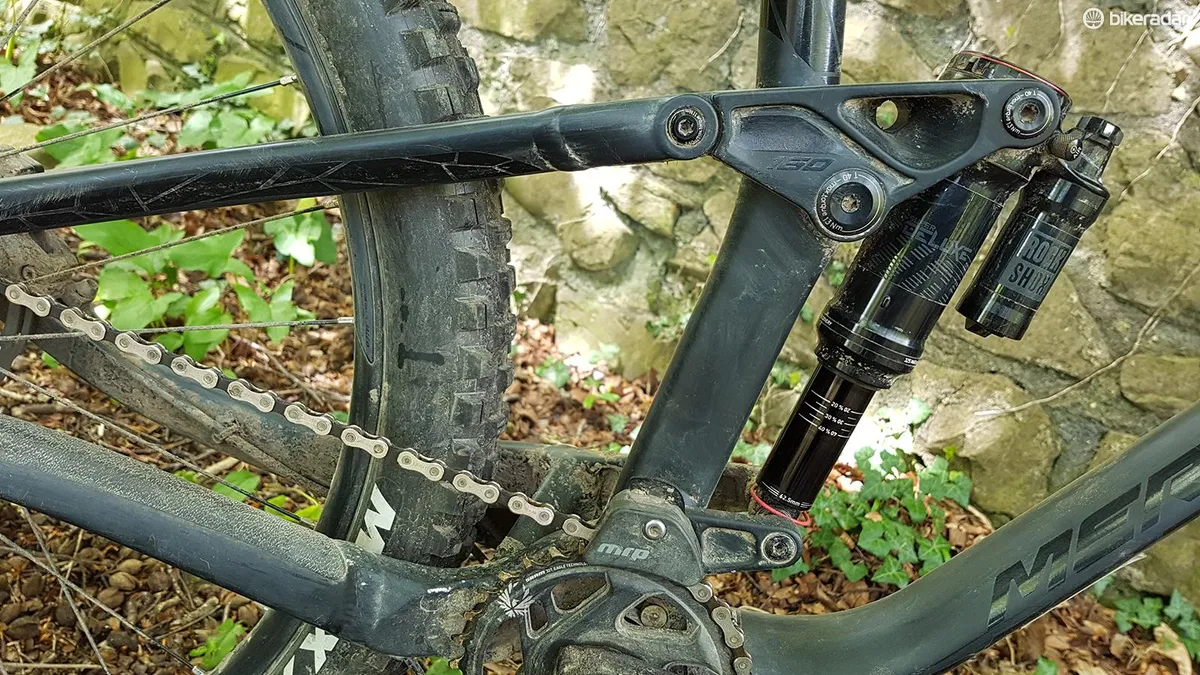
Merida One-Sixty 800 kit
Merida's own-brand, 29mm internal width tubeless-ready rims give the grippy Maxxis rubber a nicely rounded profile, though their own-brand rear hub made some painful and worryingly loud noises throughout testing, even if it did hold up throughout.On a bike with these intentions, I'd have preferred to see a wider bar as standard, as the 760mm offering could be a little narrow for some. The shape of the bar won't be to everyone's liking either, although it is something you get accustomed to after a while.One highlight is the SRAM Code R brakes. The smooth power and modulation leave your hands feeling fresher after tackling steep, rough descents and I never struggled with hand fatigue even on longer runs.
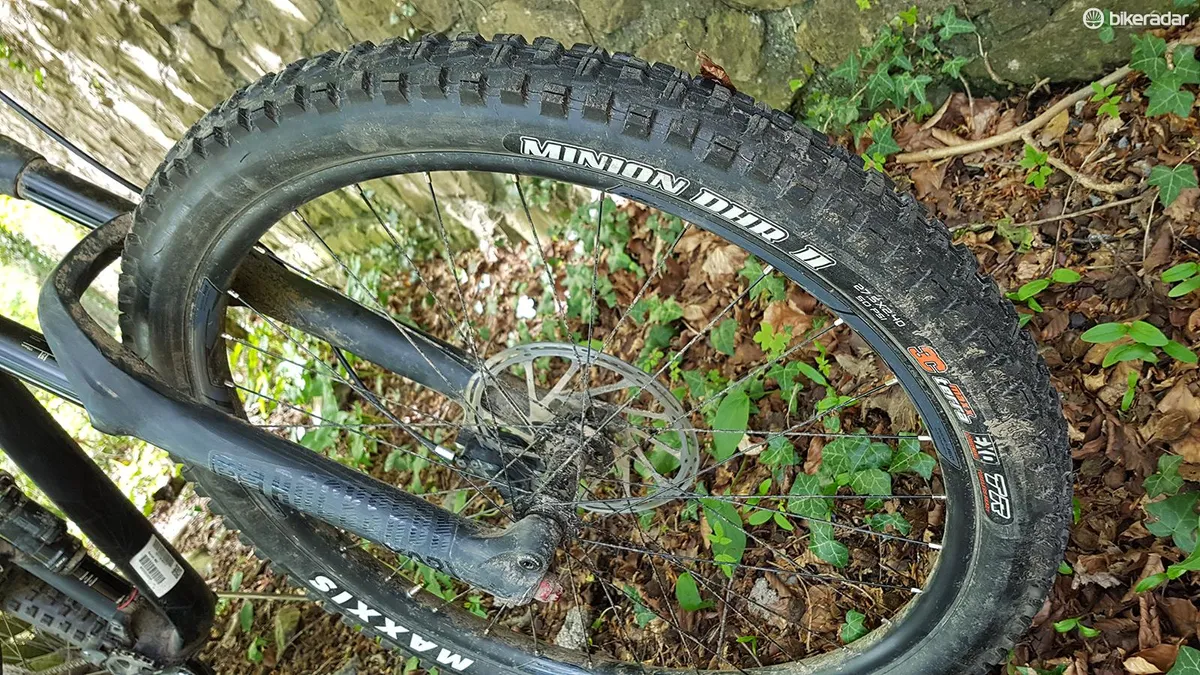
Merida One-Sixty 800 ride impressions
The One-Sixty's ride is a tale of two halves. On flatter trails, where you need to pump the bike through undulations to maintain momentum, the supple rear suspension keeps the rear wheel stuck to the floor and when loaded hard, lacks the support and liveliness that can, on certain sections of trail, dull the experience somewhat.It also means you have to work hard on mellower gradients to carry speed or when popping between jumps or hopping obstacles. Some tinkering improved this though. By adding a few clicks of low-speed compression adjustment to the Super Deluxe rear shock and dropping some air pressure from the fork, I managed to get things feeling a touch livelier. This improved overall suspension balance, which in turn helped keep the front tyre weighted in flat turns, though it was clear these sections of trail weren't where the 800 was best suited.Get the One-Sixty to the top of a steep, rocky trail littered with square edge hits and technical turns, and the control and speed will be evident on the way down. Wind it up to speed, drop your heels and the bike will calmly plough through some seriously out-of-shape terrain, swallowing steppy rock sections with an almost stealth-like patter, back tyre skimming across their peaks.
As the back end naturally sits quite deep into its travel, any worries around bottom bracket height soon disappear and it'll hold lines through low-grip, root-riddled turns where other bikes are struggling to stay upright. And naturally it's here that you'll be grateful for the grippy 3C Maxxis front tyre.
In really rowdy stuff the Yari fork doesn't have quite the same composure as the pricier Lyrik, but with my softer-than-usual set-up, things never felt jarring or harsh through the bar.
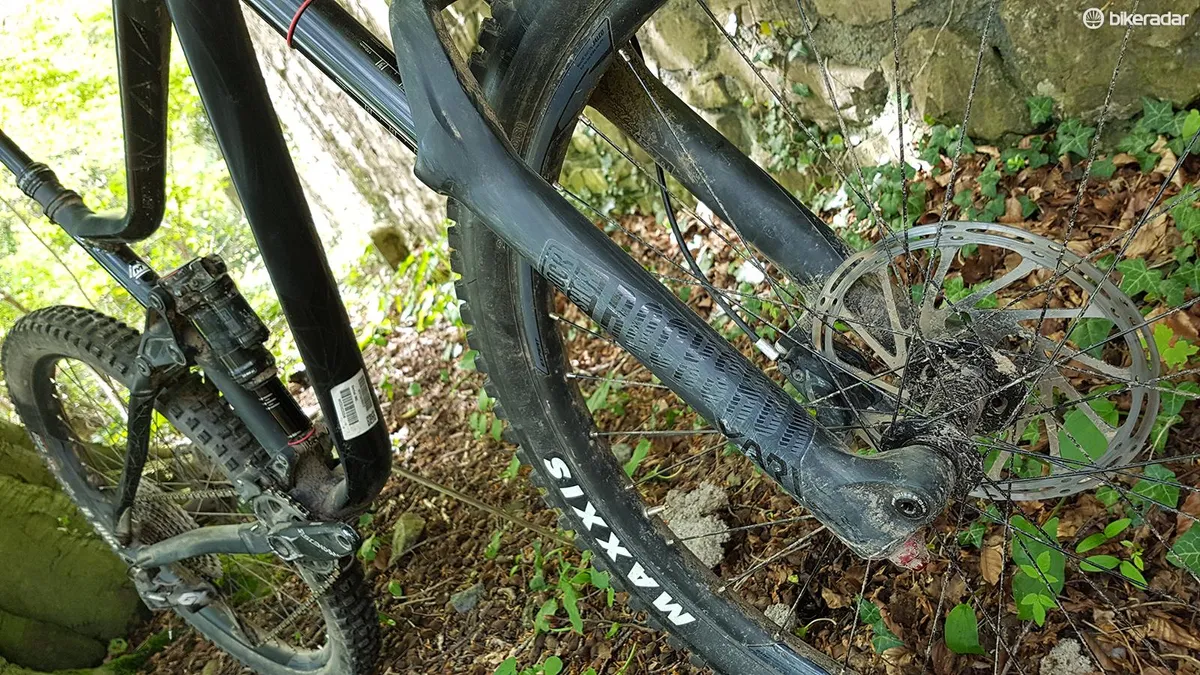
Point the One-Sixty back uphill and it won't be the most stretched-out bike when seated, but it's comfy enough on the longer drags. You'll be grateful of the shock's low-speed compression lever though, as at low revs the 800's suspension bobs quite a bit.
- BikeRadar would like to thank Life Cycle Adventures, Sanremo Bike Resort, MET Helmets, Bluegrass Eagle Protection, Mercedes Benz and Brittany Ferries for their help and support during our Bike of the Year test.
Also consider...
If you're in the market for a new enduro bike, long travel trail bike or all-mountain bike, check out our reviews of those we've thoroughly tried and tested.
- Canyon Torque CF 8.0
- Bird Aeris AM9 GX
- Radon Swoop 170 9.0
- Nukeproof Mega 275 Pro
- Mondraker Dune
- Specialized Enduro Comp 29
- Transition Patrol NX
- Whyte S-150 S
- Giant Reign 2
- Scott Genius 940
- Trek Remedy 8

